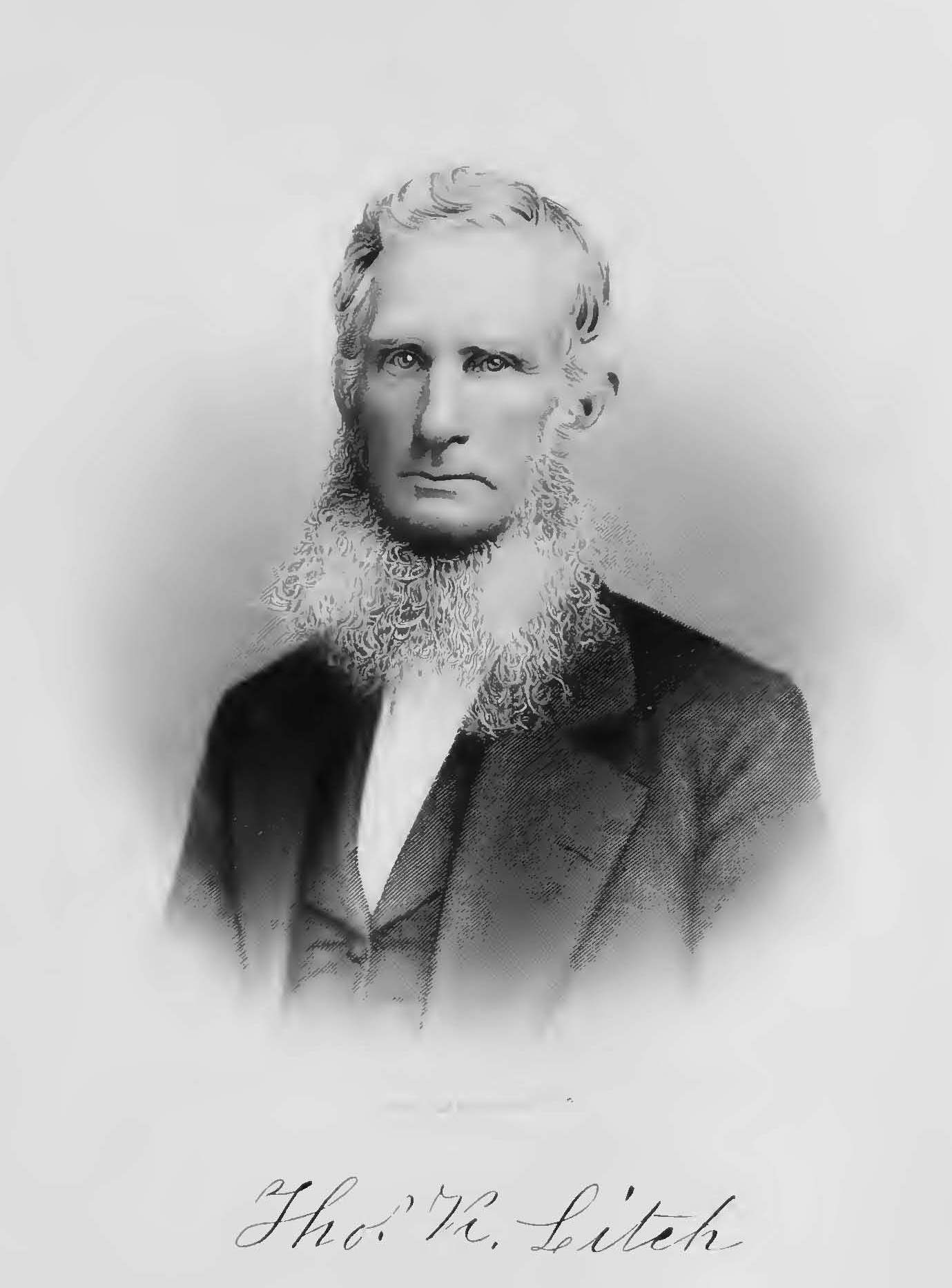Husband Thomas K. Litch 1 2

Born: 22 Dec 1808 - Fitchburg, Worcester Co, MA 1
Christened:
Died: 14 Aug 1882 3
Buried:
Father: Thomas Litch (Abt 1768-1818) 1
Mother: Hannah Kimball (Abt 1790-1870) 1
Marriage: 1834 3
Other Spouse: Rebecca M. Eaton ( - ) 3 - 17 Feb 1848 3
Wife Margaret Black 3
Born:
Christened:
Died: 1842 3
Buried:
Father: [Unk] Black ( - )
Mother: Martha [Unk] ( - ) 3
Children
General Notes: Husband - Thomas K. Litch
His tastes were for mechanics, and at the age of fourteen he commenced to learn a trade with Martin Newton, at Fitchburg, Massachusetts. While learning the business he attended school part of the time, as well as some of his youth previous to his apprenticeship. He served six years and then worked for a Mr. Harvey, in Worcester, Massachusetts. He moved to Pittsburgh, Pennsylvania, in the month of February, 1829, and engaged with a Mr. Bemis, a founder and machinist, with whom he remained five years. He then became the senior member of the firm of T. K. Litch & Co., founders and machinists who were located on the "point," Water street, Pittsburgh. Their business was very extensive, and included the manufacture of steam engines (stationary and portable), sugar mills, etc. At that time there were only ten foundries and machine shops in the city. The celebrated "Clipper engines," invented by Mr. Litch, were used on steamboats of importance plying between Pittsburgh and New Orleans. Engines of this pattern were being used on government vessels into the twentieth century. It was Mr. Litch who built the first steamboat launched on the waters of Lake Chautauqua, and then doing business between Mayville and Jamestown. He also built the first hand fire engine used in Allegheny city. In 1837 he was elected a member of the city council and served three terms. He was also a charter member of the old Reliable Western Insurance Company of Pittsburgh, and was one of its board as long as he remained in the city. In 1850 he removed to Brookville, having, previous to his location there, purchased the timber lands and the saw and flouring-mills of Robert P. Barr. A short time after his arrival he erected a new saw-mill, and made the necessary arrangements for managing the business on a more extensive scale.
In 1854 he organized the Redbank Navigation Company, obtaining through Judge Isaac G. Gordon (later of the Supreme Court), a charter from the Legislature, and became the president. This position he occupied until his death. The charter was a very liberal one on the part of the incorporators, as all they asked was to have their capital returned, and the tolls were so fixed that they barely kept the river in good rafting condition. This movement was of incalculable value to the lumbermen and was of more account to Jefferson County than the railroad or any previous or subsequent event. Before its inauguration the lumber business was on a very small scale, and the timber arrived in market, if it reached there at all, in a condition which prevented its sale as first or even second class lumber.
In 1856 the new and old saw-mills were burned, but were immediately replaced by another steam saw-mill with a capacity of three million feet of boards per annum. He rebuilt the grist-mill in 1869-70 and made it one of the largest in Jefferson County.
Mr. Litch knew just how work should be done, and when he secured a good workman he would keep him in his employ. He was kind and just to his employees, always paying them promptly good wages for their labor, which he expected done in the best possible manner, and his employees honored and respected him, and were never desirous of a change.
In 1878 he was one of those instrumental in organizing the Jefferson County National Bank of Brookville, of which institution he was made president, an office he held until his death. He was also one of those who were foremost in organizing the cemetery company, and purchasing and improving the same.
In 1876, owing to his declining health, the whole lumbering and flouring interests were turned over to his two youngest sons, Harry and Edward, under the firm name of Litch Bros., and by them successfully carried on until the death of their father, after which the firm was a family one, viz., Mrs. Thomas K., Thomas W., Harry C. and Edward A., under the firm name of Thomas K. Litch & Sons. The mills built in 1856 being about worn out by long and continued service, and the flood of June, 1884, doing it much damage, as well as tearing out and washing away bracket dam-cribs, booms and bridges, was replaced in 1884, with a steam-feed mill at a cost of $25,000, with a daily capacity of fifty thousand feet of lumber.
He died after an illness of several month's duration. The preceding evening he had taken a carriage drive with a portion of his family, which he enjoyed very much, but about 3 o'clock A. M. the next day, he fell from his chair with an attack of heart disease, from which he had suffered for some time, and though conscious to the end was unable to speak again.